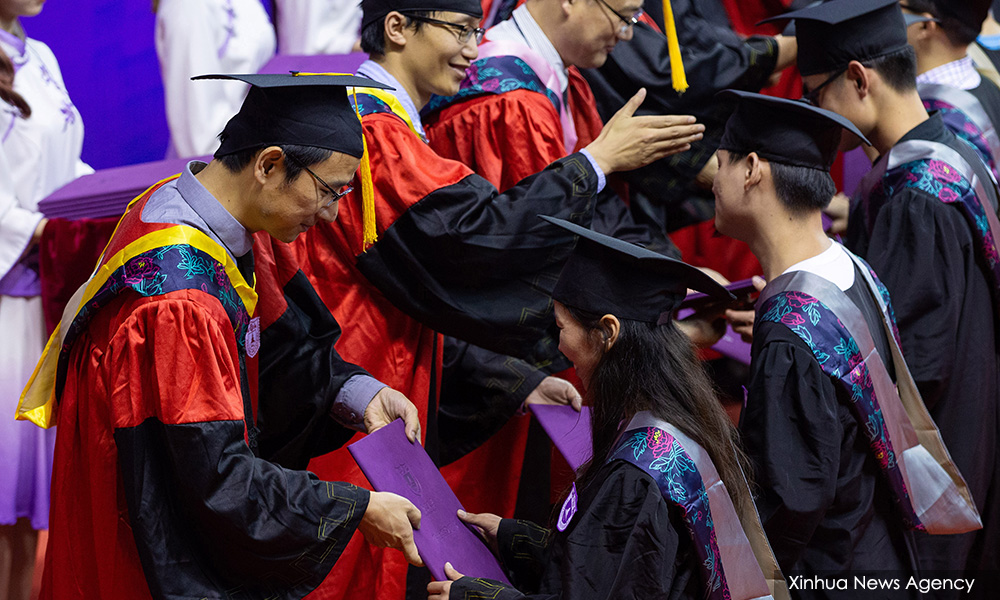LETTER | Effective training speed up career development
LETTER | Many schoolchildren continue academic studies in colleges and universities that place emphasis on memorising and reasoning rather than on practical or technical skills.
Only the best and brightest are accepted for programmes leading to licensed professional qualifications.
Those aspiring to become accountants, architects, doctors, engineers or lawyers have already identified their careers and will continue to develop and specialise after acquiring their bachelor’s degree.
They could also be successful should they switch to other careers later.
In contrast, those that pursued general studies like social science, business administration, marketing or tourism have not been quite successful.
Many could not get a job after graduation and most are underemployed, as these graduates are not earning much more than school leavers.
This is because they were only aiming to obtain a diploma or a degree, without realising that it is just a piece of paper certifying that they have attended a programme conducted by a college or university, but without acquiring the knowledge and skills needed to perform well at work.
Sadly, this is especially true for those with tourism degrees. Most have no specific career or job in mind when enrolling for a general programme. Not only that, but they could also remain clueless for the entire duration of the course, and even upon graduation.
Many would keep applying for whatever vacancies they come across, regardless of the type of work or industry. Most failed to be called for job interviews or received offers, without realising that character and communication skills are far more important than just paper qualifications.
No employer would want to recruit anyone with a bad attitude, which could be gauged by asking simple questions that are difficult to answer.
Communication skills a must
Most interviewees would suppress their annoyance. Those honest enough to say they do not know and would find out could be hired.
At the workplace, good communication and language skills are vital, not just among colleagues but also with customers, suppliers and the public.
In face-to-face engagements, visual and vocal communications are far more important than verbal, which is crucial in writing.
Granted, those that opted for technical and vocational education and training (TVET) would acquire much more industry-relevant knowledge and skills at training centres than those pursuing general studies in colleges and universities.
But the main weakness of TVET graduates is poor verbal and language skills. While written communication is necessary, especially in larger companies, interpersonal communication skills are crucial for career advancement or business development.
Many entrepreneurs became successful not because of academic or TVET qualifications but due to great communication and people skills.
However, these were not given enough emphasis in institutions of higher learning for both academic programmes and skills training.

Hence, regardless of academic qualification or skills, fresh graduates need to be trained in interpersonal communication to secure jobs in industries they would like to work in and to accelerate their career advancement or business development.
But few adults are prepared to spend a few hundred ringgit of their own money to attend a short course to perform better at work, although their parents may have spent tens of thousands of ringgit for them to get an academic degree but end up being unemployed or underemployed.
However, beware that not all training courses and trainers are equal or the same. Programmes that look impressive on paper and during delivery may be least beneficial if participants are loaded with tonnes of information to digest or wowed with amazing facts and figures.
If so, it would be difficult to remember or recall, much less apply. For example, customer service training courses are popular, and attendees get to hear a long list of dos and don’ts.
But knowing them does not mean that they would be on their best behaviour or act accordingly.
For example, Malaysians know that overconsumption, especially unhealthy foods, is bad, as it could lead to being overweight, obesity and many other non-communicable diseases.
But about 16 percent of our population is obese or grossly overweight, the highest in Asean, while it is only two percent in Vietnam.
Bosses must learn too
Hence, trainers should not engage in lengthy lecturing. It would be much more effective if texts, pictures and videos are distributed in advance for interested participants to go through so that they could ask questions and seek clarifications during training, as time is very limited.
Evaluations should be done by getting participants to share what they know so that mistakes or inaccuracies could be corrected by the trainer, and trainees to be coached on how to improve on weaknesses.
Confirmation should be given to those who have spoken correctly and praised.
In group training, the wrong notions spoken by one participant could also be held by half of the attendees. And so, correcting the mistake of one would benefit half of the audience.
Without getting participants to speak up and confirm whether it is correct or wrong, it is not training.
Therefore, in customer service training, it is more important to get participants to share their best and worst incidents or experiences, how to do better the next time, and finally to pledge in front of everyone what steps they will be taking to improve customer service after training.
Contrary to popular belief, customer service is not limited to frontliners. It starts with the top management that must decide on how the public and customers are to be engaged online and in person, and facilitate valuable feedback such as complaints, concerns and compliments.
Hence, customer service training should be attended by all, and the same workshop could be participated by personnel of all levels, as everyone could learn from each other.
And most importantly, they will realise that without displaying courtesy, there is no customer service.
On the other hand, most so-called training seminars are not effective and online learning through webinars is mostly a waste of time.
Hardly anything useful could be learned for application by passively listening to lectures and talks, with many losing focus by daydreaming.
Benjamin Franklin was credited to have said: “Tell me and I will forget, teach me and I will remember, involve me and I will learn”.
And the best environment to learn is in a training workshop facilitated by a trainer who knows what he is talking about.
YS CHAN is a tourism and transport consultant and writer.
The views expressed here are those of the author/contributor and do not necessarily represent the views of Malaysiakini.
RM12.50 / month
- Unlimited access to award-winning journalism
- Comment and share your opinions on all our articles
- Gift interesting stories to your friends
- Tax deductable
